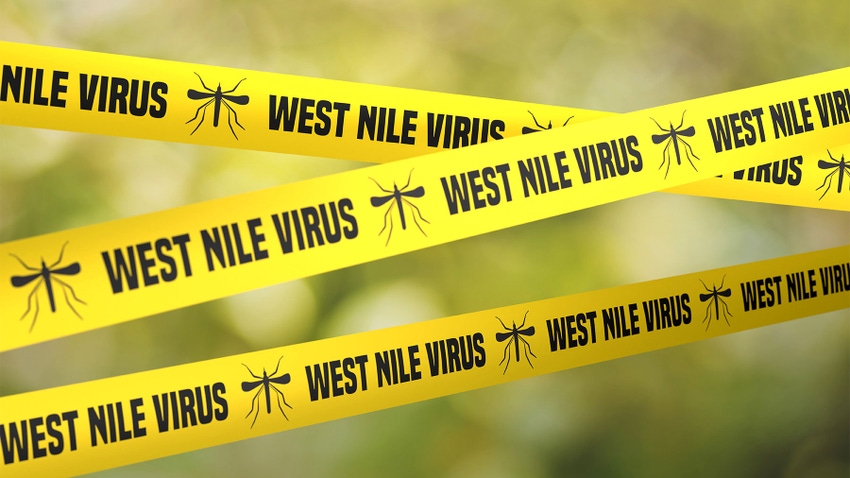October 12, 2023

On Sept. 18, a 5-year-old Standardbred mare from Clare County, Mich., became ill with a lack of coordination and weakness in her hind limbs, and subsequent testing revealed the mare was positive for West Nile virus.
The horse was unvaccinated against the disease and is the second case of WNV reported in a domestic animal for 2023.
“This case fundamentally highlights why animal owners need to continue taking precautions to protect their animals from mosquito-borne diseases,” state veterinarian Nora Wineland said in a statement.
Wineland advises placing livestock in a barn under fans during peak mosquito activity (from dusk to dawn), eliminating standing water on one’s property, using an insect repellant on animals that is approved for the species, and contacting a veterinarian to vaccinate horses against WNV and other mosquito-borne diseases. These are all vital measures to take in order to keep animals healthy.
Horse owners should contact a veterinarian if a horse shows signs of illness such as mild fever and stumbling, which can progress to being down and struggling to stand.
Funding is available to test animals suspected of having WNV or other mosquito-borne diseases. Contact the Michigan Department of Agriculture and Rural Development at 800-292-3939 for more details.
WNV is a viral disease transmitted through the bite of an infected mosquito. While the disease typically affects horses, humans and birds, it can sometimes cause illness in other animals. The disease is not spread by horse-to-horse or horse-to-human contact.
WNV and other mosquito-borne diseases are typically seen in late summer to early fall each year in Michigan. The mosquitoes that carry WNV will remain alive and active until there has been at least one hard freeze where the temperatures fall below 28 degrees F.
As of Sept. 28, WNV was also detected in 10 wild birds and 127 mosquito pools throughout Michigan. There were 10 cases of the disease reported in humans as well.
For more information about WNV, visit michigan.gov/emergingdiseases.
Source: MDARD
Read more about:
HorsesYou May Also Like




